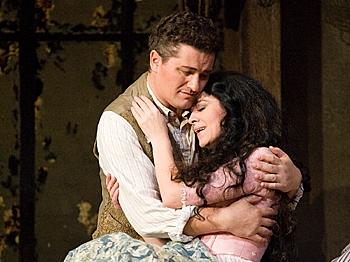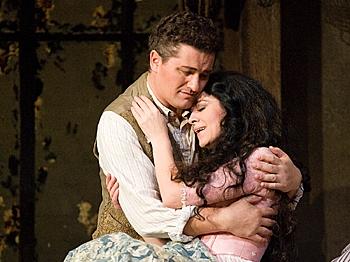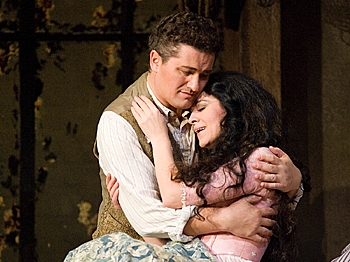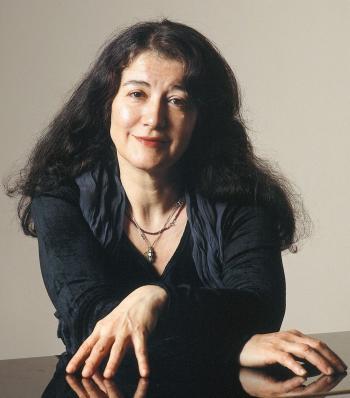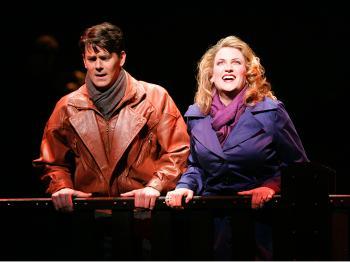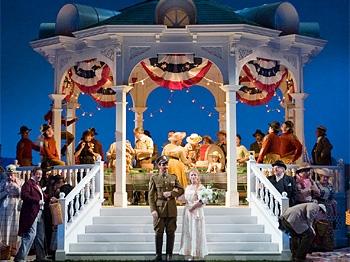Appearing as Mimì was Romanian soprano Angela Gheorghiu, while the part of Rodolfo was sung by Polish tenor Piotr Beczala. Italian conductor (and SF Opera’s music-director-to-be) Nicola Luisotti joined forces with chorus director Ian Robertson to help produce the visually and artistically stunning production directed by Harry Silverstein.
Romance, Parisian Style
Set in mid-19th century Paris, Puccini’s La Bohème chronicles the lives of a group of struggling artists: Rodolfo the poet, Mimì the seamstress, Marcello the painter, Musetta the singer, Schaunard the musician, and Colline the philosopher. There is a deep sense of kinship among the fictional artists, much like the one that existed among their historical contemporaries: Chopin, Liszt, George Sand, and Delacroix. Also, like their real-life counterparts, the group is tragically torn apart by consumption, a disease that reached epidemic proportions in the artistic community of Paris in the 1800s.
The four men share an attic apartment, while Mimì and Musetta live nearby. Mimì knocks on the door one evening, asking for a match to light her candle, just as Rodolfo is on his way out to join the rest of the gang at Café Momus. Their encounter is love-at-first sight of the lightning-bolt, earth-shattering kind.
Mimì drops her key in the excitement, and the two of them end up on all fours frantically looking for it in the dark. Mimì’s ice-cold hand brushes against Rodolfo’s, leading to the tenor’s aria “Che gelida manina” (What a Cold Little Hand), which Beczala sang with remarkable clarity and charisma. Mimì replies with an aria of her own, “Sì, mi chiamano Mimì” (Yes, They Call Me Mimì), delivered with the gentle, stirring tones that are Gheorghiu’s alone. There are subtle visual clues that Mimì’s visit is not accidental, but an innocent yet calculated attempt to seduce Rodolfo.
As Rodolfo and Mimì celebrate their newfound love in the soaring duet “O soave fanciulla” (Oh, Gentle Maiden), the light inside the attic apartment was dimmed as other light sources from behind the walls grew in brightness revealing the astonishing translucent construction of the set. The lovers were thus bathed in bluish moonlight from all sides in the powerful closing scene of Act 1.
Act 2 opens in the “Quartier Latin” (Latin Quarter) of Paris, perfectly populated by the highly skilled and colorfully costumed chorus. On the way to Café Momus, Rodolfo buys Mimì a pink bonnet as they walk hand-in-hand through the snow-dusted boulevards. The Parisian sights and sounds of a forgotten age came to life with amazing vividness and brilliance on stage at the War Memorial Opera House.

